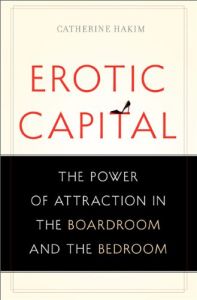Join getAbstract to access the summary!

Join getAbstract to access the summary!
Catherine Hakim
Erotic Capital
The Power of Attraction in the Boardroom and the Bedroom
Basic Books, 2011
What's inside?
Women, exploit your erotic capital to gain every possible advantage.
Recommendation
Catherine Hakim’s theory of “erotic capital” is controversial, not least because women tend to believe that relying on looks and charm to catch a man or get a promotion are subterfuges best left behind in the 1950s. With little apparent fear of running deeply against popular thought, Hakim, a social scientist, proposes that all women should become as attractive as possible and then exploit their sexual power. She explains that the “male sex deficit,” the idea that men always want more sex than they get, raises the value of women’s erotic capital. Hakim claims that radical feminists, religion and patriarchal society currently foil this feminine advantage. Although the beauty bias is not a new concept, Hakim’s reinterpretation raises the stakes. Alas, though she supports women in general, Hakim proves consistently unkind to males, Americans, lesbians, feminists, the overweight and the religious. Nonetheless, for a new perspective on the advantages of attractiveness and on the gender conversation, getAbstract suggests Hakim’s thought-provoking thesis.
Summary
About the Author
Catherine Hakim, a British sociologist and expert on women’s issues, is a professor at the London School of Economics.
















Comment on this summary